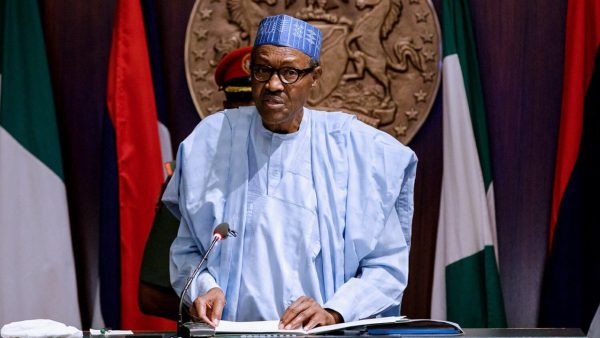Ailing Nigerian Economy: Maritime Sector The Headway

For more than three decades, crude oil has been a major source of revenue, energy and foreign exchange for the Nigerian economy. Nigeria’s economy as at today is struggling to leverage the country’s vast wealth in fossil fuels in order to displace the crushing poverty that affects about 57 percent of its population. Economists refer to the coexistence of vast wealth of natural resources and extreme personal poverty in developing countries like Nigeria as the “resource curse”.
The nation is yearning for economic diversification especially at such a time when it’s over reliance on crude oil has led to economic chaos occasioned by the fluctuation of the global crude oil prices. Nevertheless, in the maritime and transport sector, the nation has an alternative source through which hinterland and landlocked trade needs are served.
The size and scope of the maritime sector demand close attention by its value in the political economic and social structure of the nation because it stimulates and evaluates exports, serves manufacturing industries and the distribution chain of consumables, provides logistic base for deep sea exploration and security base for deep sea exploration and contributes significantly to the finances of the nation’s economy.
The level of efficiency of a port system can boost or mar the economy of host states. Ports are the vital terminals through which over 90% of internationally traded goods are carried by. Sea Ports are dynamic in response to global forces of change. Ports can also integrate national economies to global market streams.
By recent statistics, Nigerian imports over 150miIlion metric tons of non -oil cargo and approximate 1,500,000 units of containers a year. These figures are for the formal trade alone and will certainly be bigger if we consider the informal trade aspects of cargo movements.
Ship traffic into Nigeria by latest data exceeds 5,307 per annum. The potential is certainly bigger when we consider the capacity of cargo traffic to Nigeria’s land locked countries. In real terms, over 85% by value of all the goods and services that enters the country comes through the sea ports.
The current aggregate exceeds $15,000,000,000 a year through formal import orders. It is therefore settled that the Maritime Sector performance is indeed a major contributor to the nation’s Economy.
According to experts, the cumulative cost of perceived political instability, record low crude oil prices, and dipping confidence in economic and financial markets has cost Nigeria something between $25 and $30 billion, and the consequences are beginning to materialize.
In this write-up, MMS Plus brings you the perspectives of two maritime experts on how best to explore the maritime industry to get the best for the nation.
The Managing Consultant, Renaissance Consulting, Mr. Felix Ovbude noted that the maritime sector provides opportunities in several these areas; Contributions to National GDP, Establishing cargo rights from traffic generated by Nigeria’s international trade, Re- establishing a national fleet, Growth of industries and Development of Value Added services, Oil & gas, Refinery, Fertilizer Blending Plants, Petro- Chemical Industries, etc.
He demanded that a competition policy be put in place to address challenges of emerging private monopolies and other anti-trust activities and he called for the development of a port master plan in order to address the deficit infrastructure.
Ovbude stated that a high power Policy Group of chief executives of NPA, NIMASA,SC, NIWA,MAN – Oron, NITT, FMOT, relevant Directors, Legal , IOCs and Organized Private Sector under the chairmanship of the Minister of Transportation be established to meet three times a year for a thorough feedback on policy drive and implementation.
However, he maintained that Maritime transport is a key engine driving globalization and competitiveness, but stressed that the desire for the attainment of 48-hour cargo clearance in Nigeria, as it is elsewhere may not be realistic as yet.
“The Port of Cotonou may achieve 48-hour cargo clearance due to the fact that it is largely a transit/transshipment port. High cargo dwell time which is a result of the use of our ports as storage by some importers and inefficiency in our cargo delivery system caused by the peculiar and fundamental reason Nigerian ports are destination ports, impede the achievement of 48-hour cargo clearance”
According to him, another area of challenge with the Nigerian maritime industry is the traffic gridlock that has become a perennial feature of Nigerian seaports, especially ports of Lagos.
“Traffic costs the nation several thousands of lost man-hours daily. Container traffic growth out- stripping port capacity; land-side infrastructure gap; under- development of inland waterways transport to move cargo from ports; and non-availability of a truck holding bay, are the remote causes. Consequently, trucks have to queue up on the port access roads for long hours to drop/load cargoes” he said.
Meanwhile, the Chairman, Ports Consultative Council (PCC) Otunba Kunle Folarin highlighted the need for strategic alliances between the Federal Ministry of Transportation and key Federal Government Ministries whose functions interphase.
He noted that the Federal ministry of Finance was needed for matters relating to Nigeria Customs Service, Federal ministry of Labour on matters relating to dock workers and others working the port environment, Federal ministry of Trade, Investment and Industry for international trade conventions competence.
While the Ministry of Defence would cover maritime security, Ministry of Environment for issues relating to environmental impact on projects in the ports and habours development, Federal Ministry of Interior in matter relating to the Police, the National Assembly to enable Bills, acts and domestication of conventions.
Otunba Folarin also noted that intermodalism was one of the factors that would drive the entire transportation industry. He said that linking railways to the ports and connecting aviation also should be an agenda so Nigeria could have the opportunity to increase productivity and move cargo from the ports without using a single mode of transportation.
Other critical issues in the maritime domain include; piracy and armed robbery, effects of macro-economic polices, free trade zones restrictions, excessive port charges, multiple interventions in the clearing processes, difficulties in export documentation and contracts, import items prohibitions, parallel tariffs and duplication of charges, foreign exchange access to shippers, compliance with WTO, EU protocols, etc.
As much as the US has put a stop to the importation of crude oil from foreign oil producing states due to the increase in the local production of the US oil, the line of drum dance that beat the scorn of Nigeria is that; were we prepared for this sudden dwindle? Is Nigeria the only oil producing nation affected by this shock? What is the present possible revenue ventures of other nations involved in the oil crisis? Can Nigeria survive the crisis with the level of international warfare befalling the nation? The answer is yes! But the nation would have to take a critical look at other sectors as a substitute to oil and the maritime industry is one sector that has the potential to transform the nation’s fortunes.
Our sincere prayer is that the federal government gives the sector the right attention.







